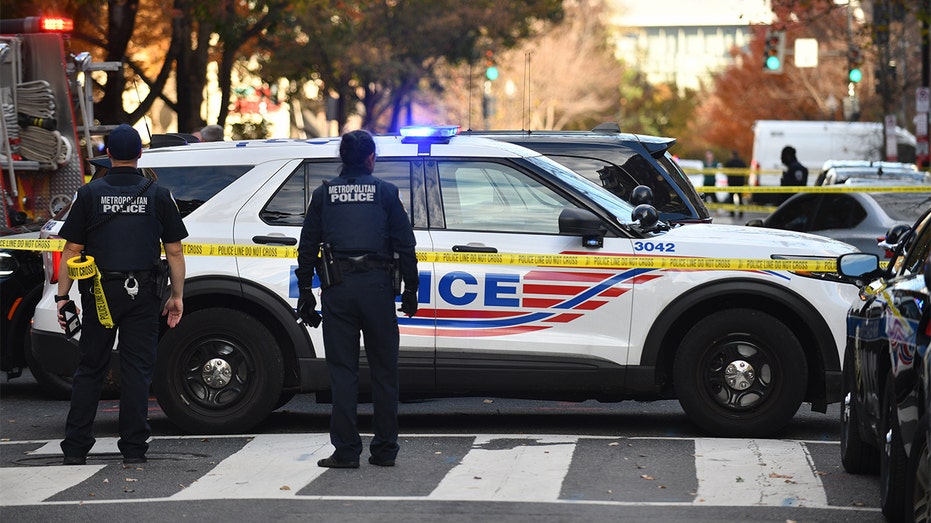Washington Post reporter calls shoplifting concerns a ‘moral panic’ in USA: Country ‘built on stolen land’
A report in The Washington Post's Style section argued that conservative outlets are overblowing crime and robbery in D.C. and other U.S. cities to generate "moral panic."

A new Washington Post report suggested that the crime problem in major American cities has grown into a "moral panic."
Post culture reporter Maura Judkis authored the piece in the paper’s Style section on Friday, with the headline "The zombie CVS, a late-capitalism horror story."
In it, Judkis noted how a Columbia Heights, D.C. CVS had been looted and shoplifted from so much that there was hardly anything of value on store shelves until it was shut down this week.
WASHINGTON WIZARDS, CAPITALS PLAN TO DEPART DC AS CRIME CRISIS INTENSIFIES; YOUNGKIN CELEBRATES MOVE
She wrote, "Everything else that remains in the store in Northwest D.C., which is not much, is under plexiglass: Dawn dish soap, L’Oreal shampoo, MiraLax, a handful of Clairol root touch-up hair dye kits, flu season combo packs of DayQuil and NyQuil. The diapers are behind the counter. The Cetaphil and Neutrogena face washes are under lock and key."
"Other shelves, stretching entire aisles, are totally empty," Judkis added.
Though, rather than reflect on the crime that has forced this store and stores in other major U.S. cities to close, the reporter delved how these crimes are being seized upon by conservatives trying to stoke fear about crime waves.
"It became a horror story of Late Capitalism," she wrote, adding that "the empty CVS had somehow become a stand-in for all that is wrong with American cities — and liberals (and liberal democracy?) — in 2024."
The reporter continued, implying that there is ancestral guilt about stealing and colonization at play in this "moral panic."
Judkis wrote, "America is a sticky-fingered nation built on stolen land, and its current moral panic is about shoplifting. It’s not just a worry in Columbia Heights. All over the country, from sea to shining CVS, there are concerns about petty theft."
She said it has become a "political talking point" even though the date behind this crime spree is "murky," as she described. She provided her evidence, stating, "Theft has gotten worse in some cities but better in others; it’s either underreported or overexaggerated, depending on whether you’re asking a corporation or a bureaucracy."
"Anecdotes and vibes have filled in the gaps," the reporter declared.
JUSTICE DEPARTMENT ANNOUNCES NEW RESOURCES TO COMBAT VIOLENT CRIME IN DC
Her piece then delved into explaining why the crime was happening, seeming like an attempt to put the reality of the situation beyond mere criminality.
Citing the Advisory Neighborhood Commission’s Carlo Perri, she wrote, "First, there are the economic factors triggering human need: joblessness, inflation, a slow recovery from the pandemic. There have also been changes to how police officers do their jobs — ‘a dearth in active policing,’ as Perri puts it."
Judkis added that CVS policy is a factor in this increased crime, saying, "The drugstore chain employs security guards but instructs them not to pursue shoplifters. Meanwhile, in Washington, city officials say they’ve observed a rise in organized retail crime, which involves thefts of items to be resold on the street."
And although the reporter even noted Mayor Muriel Bowser’s recent statement on theft at this CVS – "We have to stop treating it … like kids just shoplifting a thing or two, because it’s having real impact on the ability for people to get the goods and services that they need" – Judkis maintained that the store "got caught up in the culture wars."
She wrote, "In certain conservative circles, there’s a wild narrative about cities as terrifying hellholes of crime, theft and lawlessness. The bleakness of the D.C. CVS played right into this belief."
She later added, "While it’s true that the Columbia Heights CVS, as well as parts of the surrounding neighborhood, are experiencing crime and theft, it’s hardly the dystopian nightmare that outsiders make it out to be."
She noted how there are still nearby stores doing well, and pointed out how "industry groups" and other entities, have "also overexaggerated the problem."
Fox News Digital reached out to Judkis for comment is waiting for a reply.



